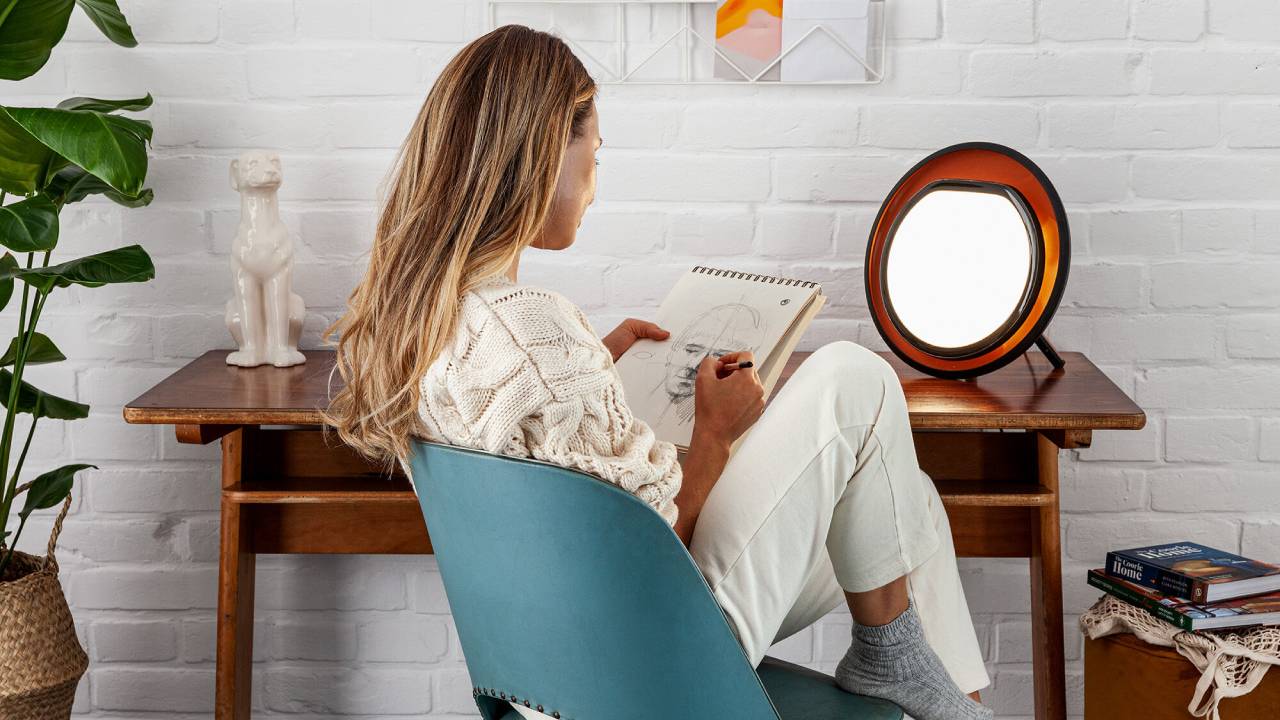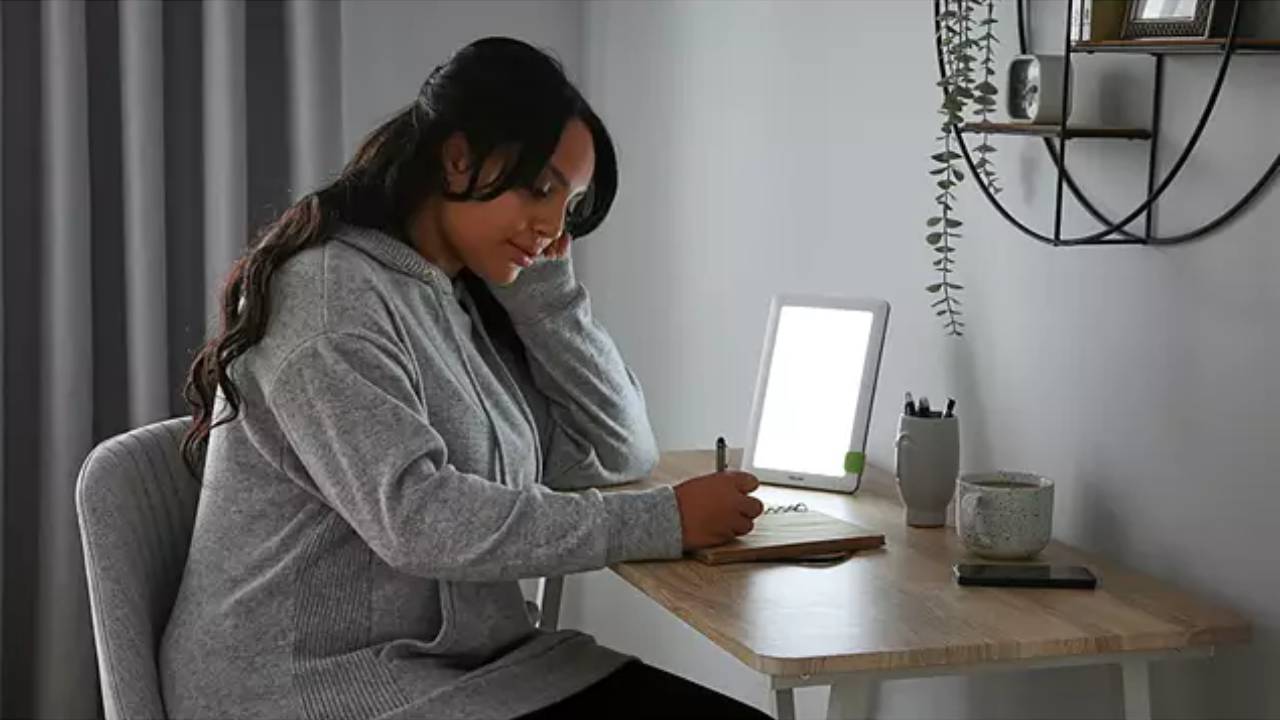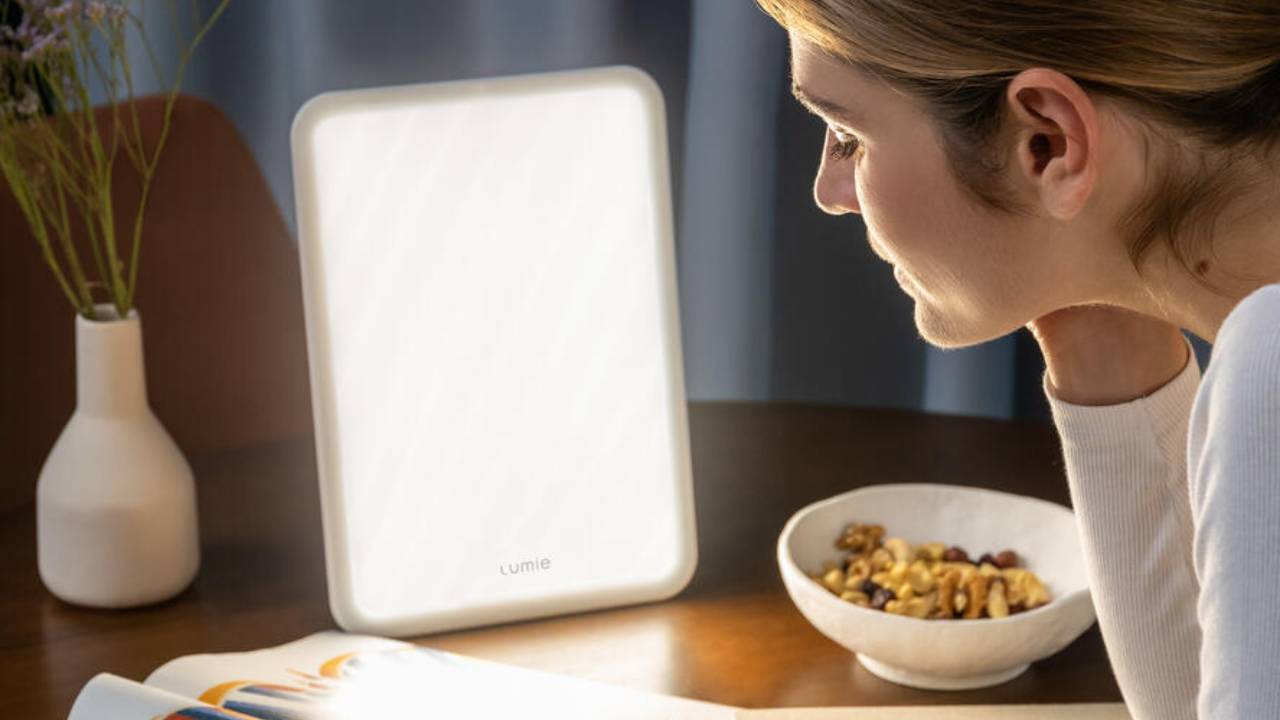
I'm writing this in Scotland at the start of November as a heavy storm is moving in: it's dark, it's gloomy, it's horrible and I'm feeling SAD. Not sad; SAD, as in Seasonal Affective Disorder. It's a form of depression – the UK NHS says it's sometimes called winter depression – that comes rolling in like a fog in the darker days of winter, and in northerly places such as Scotland it's recommended that everybody takes vitamin D supplements to help ward it off. But another potentially helpful treatment is a SAD lamp.
SAD lamps are designed specifically to address the lack of sunlight we endure in the darker months and days. They deliver a very pure, very bright light, and that's believed to have an effect on your mood. Friends, family members and I have had several over the years and I think they do work: in particular, I've found that a decent blast in the morning is an effective way of helping to beat the winter blues. If you don't already have one, this is a good time of year to buy: you often find SAD lamps among the best Black Friday deals.
Not all SAD lamps are equal, however, and with options ranging from super-cheap to frighteningly expensive it can be hard to decide what to buy. Here are some lessons I've learnt over my many years of trying to stave off SAD-ness.
1. They don't need to look medical
Many SAD lamps have a distinctly medical style, and look like they wouldn't be out of place in a hospital or clinic. But not all of them do, and if you want a lamp that doesn't look out of place in your front room or office then there are some nice options from the likes of Lumie and Philips. I really like the Lumie Halo, pictured at the top of this article: it's pricey but looks very stylish, and it doubles as a warm white reading lamp when you don't need to emulate sunlight. There are also some really nice wake-up lamps that'll start your day with a slowly increasing burst of brightness to help you begin each day in a better mood.

2. You need to look at the light power
SAD lamps' brightness is measured in lux, and the higher the number the higher the brightness. Such lamps are believed to be most effective at brightnesses of 10,000 lux. Lower than that and you may not get the full benefits.
3. You need to be quite close
A SAD lamp on the other side of the room won't do anything to help your mood. Such lamps are designed to be placed next to you – not shining directly into your eyes but to one side and close enough that you'll be lit up like a museum exhibit. The lux ratings for SAD lamps are distance-dependent, so you'll see ratings such as '10,000 lux at 20cm'. The further away you put it, the less light you'll be exposed to.

4. If you can't be close, you need more power
It's easy for me to say that you need to be close to your lamp: I'm working all day on a computer desk where it's simple to stick a SAD lamp close by. But in rooms like front rooms that might not be possible or practical, you don't necessarily want a SAD lamp taking up room where you'd normally put your book and coffee. If you need a lamp to be positioned further away, look for one with much higher output.
5. You shouldn't self-diagnose SAD
Some of the symptoms of SAD are similar to those of other conditions, such as depression or ADHD. That means it's important to speak to your doctor or other health professional if you have symptoms such as persistent low mood, loss of interest in things you used to enjoy and so on. It could be SAD, but it might be something else that will respond better to a different kind of treatment.







